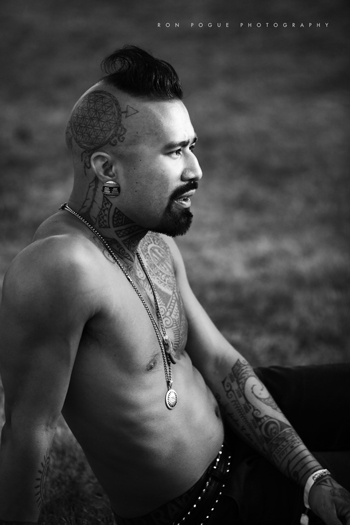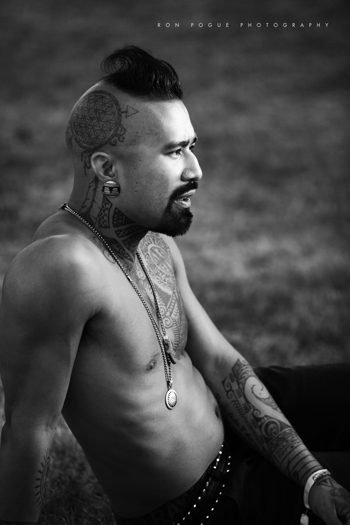 And if you call on me, I’ll come running like a coyote, because we’re a pillar indeed, a lighthouse when you’re out to sea. — Nahko and the Medicine People
And if you call on me, I’ll come running like a coyote, because we’re a pillar indeed, a lighthouse when you’re out to sea. — Nahko and the Medicine People
Since 2008, American musicians, Nahko Bear and Medicine for the People, have spread their message of inner strength around the world. Their mission is to inspire people to make change and to take action. The Watershed Sentinel spoke with Nahko before his performance last August at Atmosphere Gathering in Cumberland, BC.
Your songs hold powerful messages about hope and our connection to the land. How have your personal experiences shaped your music and activism?
I was writing music about understanding my place in a crazy world. Pretty simple. The music was changing as I was reaching out and looking for elders to ground me.
I was struggling with my identity. I was adopted when I was 9 months old into a white family – Republican, very conservative, Baptist – it’s all I knew. In 2000, I found my Mom on Google. My Mom is Puerto Rican and Apache, and my Dad is Filipino. All of a sudden, I had this whole brown family who had their cultures and traditions. I started to understand our history and where we came from. I came to realize that I was in a special place to understand two sides of reality in America.
I was living on a farm in Minnesota and getting to understand what the Ojibway were going through there. I saw a poster of Winona LaDuke on a horse that said, No Nukes LaDuke, and said, she looks badass, I want to meet her. When I finally got in touch with Winona she brought me into her world.
Do you consider yourself an activist?
No, I don’t. I see it as being able to sing the song of creation. There’s a creation story about the salmon in Mt. Shasta from the Winnemem Wintu tribe who say the salmon came out of the mountain first. After the salmon came out, the humans came out. But Creator only gave a voice to the salmon. The humans were voiceless. When the salmon decided to go back upstream they said, We will give you our voice, but only if you speak for us. And so the humans said, yes, we’ll speak for you. Their story tells them that if the salmon disappear and their waters dry up then their people disappear. That is the stage right now where they are.
Are there groups you are working with now? 
I work with Winona on Honor The Earth, and will be joining the Love Water Not Oil tour. People will paddle by canoe and ride by horseback along the proposed Enbridge pipeline route in Minnesota this summer.
Another group I support is Earth Guardians – young activists, artists, and musicians. They are inspiring kids their age to speak out about environmental issues. One of the directors is 14 year old, Xiuhtezcatl, an indigenous activist from Colorado. He is working on a statewide ban on fracking and is one of the youth that are suing the US government for not protecting the environment for future generations. He also gave a speech on climate change at the UN and was featured in July’s Rolling Stone. I’m on their board and they are doing fantastic work.
I also did a tour with Bill McKibbon from 350.org. And Josh Fox, who directed the film, Gasland, and I started talking about Rock for Renewals – rock bands that support renewable energy.
Do you get a sense that youth want to hear what is happening in the world?
Because information can be so complex, I focus my attention on being an advocate for a loving world and kindness. If I was their age, I’d still be thinking about how am I going to get out of my parents’ house or get through school? I’d rather just push a feeling, instead of an agenda and emanate that. All the people I have mentioned can teach the info. There’s so much negative and bullshit around, why not give them something to be happy about right now.
www.nahko.com
***
Susan MacVittie is the Managing Editor of the Watershed Sentinel.

